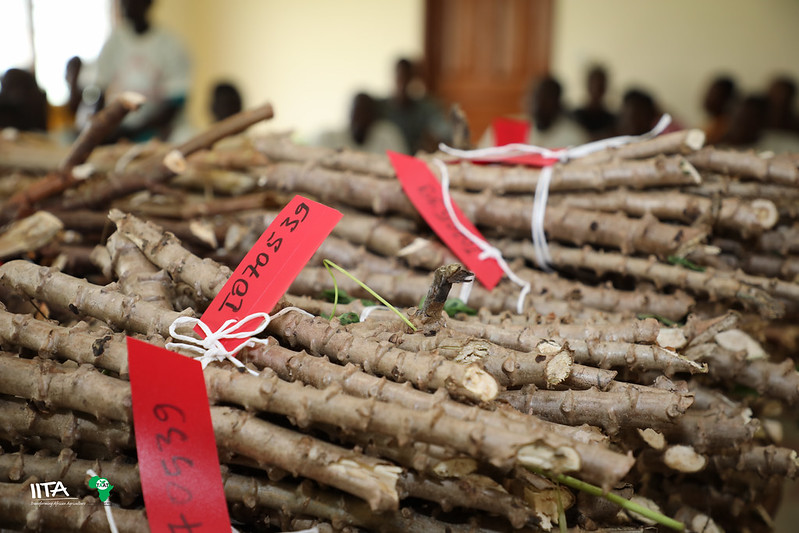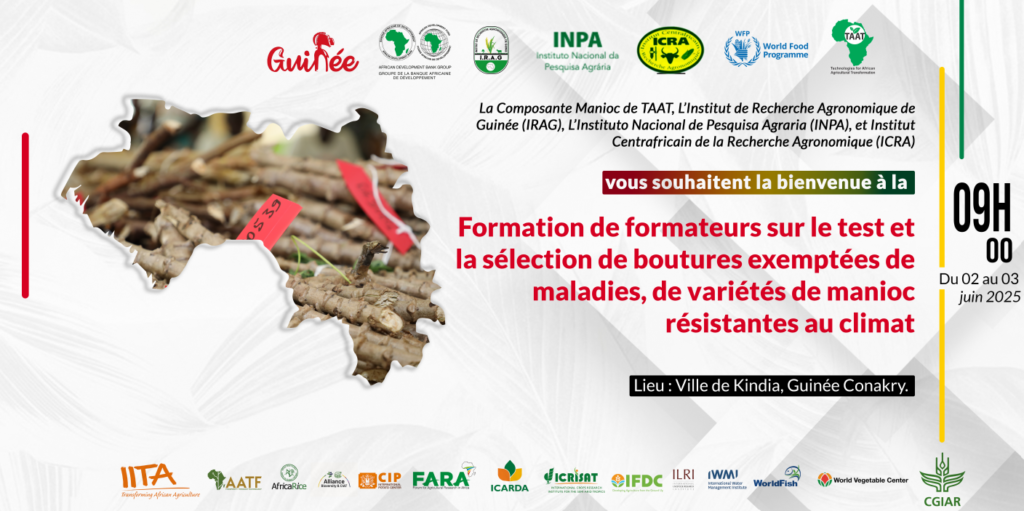
By Deborah Olaoluwa
With sights set on intensifying the production of cassava disease-free cuttings of climate-resilient varieties in Guinea, Central Africa Republic and Guinea Bissau, Technologies for African Agricultural Transformation (TAAT), in collaboration with National Agricultural Research Centres led by Institut de Recherche Agronomique de Guinée (IRAG – Guinea Agricultural Research Institute), Instituto Nacional de Pesquisa Agraria (INPA – Guinea-Bissau National Agricultural Research Institute), and Institut Centrafricain de la Recherche Agronomique (ICRA – Central African Institute of Agricultural Research), has held a two-day Training of Trainers (ToT) workshop in Guinea Conakry.

The workshop brought together participants who deepened their expertise in identifying, managing, and producing healthy cassava planting materials.
The workshop also explored building capacity among technicians and seed producers, with sessions on integrated pest and disease management, Good Agricultural Practices (GAP), legal frameworks for cassava seed production, and practical techniques for identifying pests and diseases, as well as conducting field sampling.
Organised by the TAAT Cassava Compact, the workshop featured a hands-on session in a cassava collection field, where participants applied what they learned in diagnosing diseases and pests with discussions and peer-to-peer learning.
“Our focus on the safe cross-border transfer of cassava cuttings reinforces the importance of safeguarding the cassava sector in these countries against pest and disease risks, Dr Adebayo Abass, the TAAT Cassava Compact Leader said.

Training participants during field practice.
“This sets the stage for broader impact, especially with ongoing discussions with Guinea’s Emergency Food Production Facility (GEFPF), which is focused on exploring opportunities to scale the adoption of Semi-Autotrophic Hydroponics (SAH) technology, enabling the large-scale multiplication of clean cassava seeds in the country,” Dr Abass added.
“This training signifies a strategic step in unlocking Guinea’s vast potential in cassava production—one clean seed at a time,” one of the participants said.
The training concluded with enthusiastic participant feedback and strong institutional support from IRAG leadership which hosted joint ToT workshop on behalf of the three countries.











